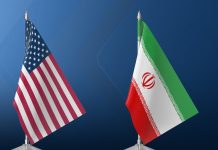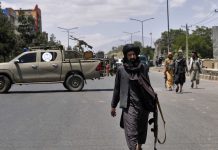Seoul: South Korean President Yoon Suk-yeol’s extremely pro-US policies will worsen ties with neighboring countries and damage Seoul’s own national interests, experts warned, as a latest poll shows the Yoon administration’s approval rating at 37.5 percent, while negative sentiment stands at 60 percent, ahead of the first anniversary of his inauguration on Wednesday.
A Yonhap News Agency-Yonhap News TV joint survey showed Tuesday that seven out of 10 respondents expressed worries about South Korea’s security, amid North Korean missile launches, and tensions with Russia over Ukraine crisis and with China over the Taiwan question. Observers deemed the approval rating of Yoon’s administration would likely continue to decline along with its extremely pro-US diplomatic policies that had damaged South Korea’s relationship and cooperation with major regional countries, which, in the long run will affect South Korea’s economy and the well-being of the South Korean people.
With its rapid enhancement of the US-South Korean alliance and seeking to change South Korea-Japanese ties, the Yoon administration is taking a diplomatic approach that is completely opposite to the previous South Korean government, Li Nan, senior research fellow at the Institute of American Studies, Chinese Academy of Social Sciences, told the Global Times on Tuesday.
A major outcome of such an extreme diplomatic approach is increasing distrust of its neighboring countries within South Korea and a worsening environment around the country, which in the long run will impede economic and cultural exchanges with South Korea, Li noted.
These are all threats to the governance of Yoon’s administration and will damage South Korea’s national interests, said Li. “Given the performance of the Yoon administration in the past year, it seems they’ve put their party’s interests ahead of the country’s interests, which is very problematic,” Li noted.
In recent years, changes in South Korea’s international and domestic environments, such as China-US relations and the COVID-19 pandemic, have led to an obvious increase of conservatism and populism in the country, Zheng Jiyong, director of the Center for Korean Studies at Fudan University in Shanghai, told the Global Times on Tuesday.
After Yoon took office, he suppressed and tried to eradicate progressive forces in a sweeping way, which has sparked a rebound and opposition by progressive forces, causing South Korea to split and fall into a “political civil war.” This kind of confrontation and strife has further compressed South Korea’s space to make choices, Zheng said.
Under the internal political shift and the “fudge” of the US, the South Korean conservatives in power have chosen to lean toward the US, he noted.
In the US-South Korea Washington Declaration that Yoon and US President Joe Biden approved in April, the two sides reached a series of strategic agreements on “extended deterrence” against North Korea, as well as the Taiwan question and the South China Sea issue, drawing firm opposition and strong criticism from China. –The Daily Mail-Global Times news exchange item




